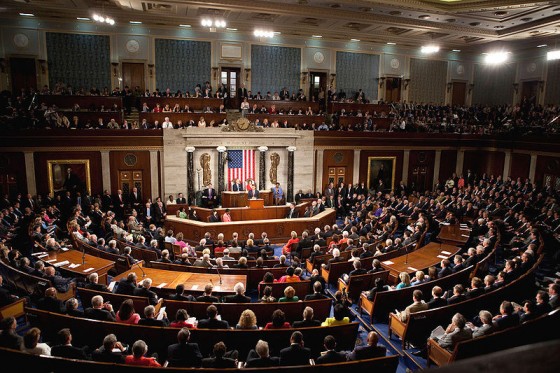The Slumber Party Manifesto
As constituted, politicians themselves are doing their best to take on the nation’s current predicament, but new obstructions have edged onto the horizon without much warning. These natural, possibly disastrous complications to America—by way of fiscal cliffs, dicey banks, changing climates, fogs of war, and many others—must be met with a clear vision. The tried-and-true leaders at the wheel now (some gripping to the left, others forcing to the right) have to decide the best course of action in this turbulent age. Since time is most definitely of the essence, it is imperative for these politicians to sleep before they take on everything head on. With ample sleep comes added clarity and lucidity, which will assist them in making keener discernments. These advantages augment decision-making and problem-solving skills, helping to negate the risk of politicians mixing up what they are deciding and solving. When it comes down to it, they will know exactly what they are doing.
Furthermore, by properly resting, these elected officials can maintain confidence, in themselves and the course already set. They must know and stand up for what they believe in at all times, declaring it to the world without a shred of doubt or uncertainty while awake. But when sleeping, the declarative memory processes new information more effectively, weighing it both with and against one’s old views, until it eventually consolidates into iron-clad resolve, ready for another round of declarations. Rest eradicates those moments in political life when leaders contradict themselves by allowing them to easily recall their memorable histories and records so they can remain consistent and certain in the present. Through sleeping, fits of forgetfulness will go down along with any craft, rare though it may be.
Finally, if politicians are to maneuver the nation through, then short-sighted solutions and erroneous declarations stemming from a lack of sleep will not suffice, as more complications will continue to arise that way. Rather, an introduction of fresh-eyed, reasonable resolutions, stimulated during the leaders’ sleep, will bring on the proper turn at the wheel, away from the troubles ahead. Only then will the naturally-occurring obstructions, with which the tried-and-true leaders so nobly deal, be gone for good.
Elected officials are not the only ones now restlessly attempting to make important determinations. The electorate, bustling with political enthusiasts, feels the same responsibility, but in dissimilar ways. While present politicians and others in line for government positions must be able to process information in order to lead the country, voters must be able to follow the news in order to properly keep them there. Voters are compelled to find out everything they can about the state of affairs and what their representatives are doing. To uphold an effectual government, the American electorate has to stay up on all the facts, but in this information age when urgent news has truly never been more at the public’s disposal, it has gotten to the point when such persistent scrutiny is detrimental: following it all too closely without rest is dangerous, exhausting business. And, as a result, this information has laid low the electorate.
To its credit, the government provides precisely what the public demands of it. With its vow of transparency and its hand in the information super highway, the government has directed free-flowing communication, by going so far as to break down everything done in statements and statutes for the voters, perpetually after the facts. This access becomes even more indispensable as the government, firing on all cylinders, mirrors the fast-moving world driven on by the internet: as the universal beacon for free expression, it signals more than enough to keep its own citizens and even others rightly informed. And going up with this simple trend, communications between peoples and their governments have only increased with the ascension of breaking news propagated by twenty-four hour television channels, big talk radio, and other similar publications that smoke out and cycle choice stories of the day. Voters, always minding the prolific incline in these networks and the like, find themselves with their own heightened perspectives by keeping track. And since they are eager to realize exactly what is at their disposal, they just cannot help but find their match.
The electorate has exhausted itself out ascertaining this nonstop news coverage and restful sleep is the only solution to break the monotony. Since a complete stoppage from these individual news sources would be too harmful to their systems, the most expedient method to accomplish this is to completely take whatever is there: to use the information to overload the informed to finally induce slumber. So cable-news viewers should nod at their televisions until nodding off. Big talk radio listeners should max the volume to fully bulldoze off the senses. And avid readers should put themselves to sleep by cramming more headlines and books. Simply put, continue to get your news.




